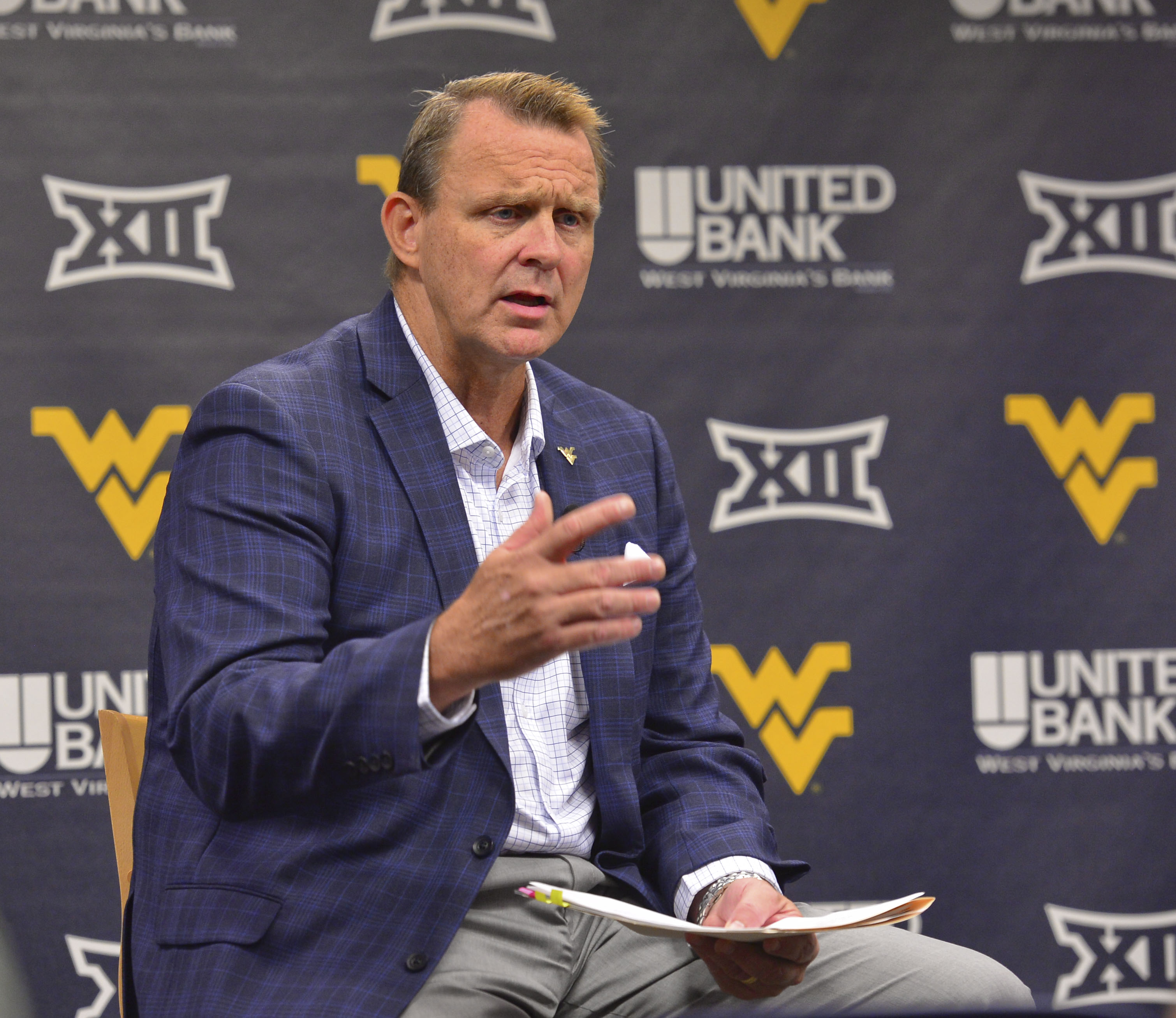MORGANTOWN, W.Va. — Many social problems have risen to the forefront of the national landscape this summer following the death of George Floyd in late May in Minneapolis.
As a result, many organizations have formed to try and improve race relations and help minorities become established in American society, and the WVU athletic department announced its next step in doing the same.
Athletic director Shane Lyons announced a Diversity, Equity and Inclusion (DEI) committee for his department, which will have the mission of listening and absorbing the goals, ideas, thoughts and opinions of student-athletes, coaches and staff.
“One thing that we want to have in this department is diversity and inclusion,” Lyons told The Dominion Post. “We’ve tried to do that throughout every hire that we’ve made and with the things that we do. We’re hearing from those individuals to make sure that we’re doing the right things in this department.”
Currently, there are two minority head coaches at WVU — volleyball coach Reed Sunahara (Samoan American) and rowing coach Jimmy King (Asian American) — out of 17 total varsity sports. Women’s soccer coach Nikki Izzo-Brown is the only female head coach, despite having nine varsity women’s sports at the university.
In the history of the athletic department, there has been just one Black head coach — former men’s soccer coach Marlon LeBlanc — who resigned from the program after last season following a 15-year stint at the helm.
“I’m not going to pull any punches, that number is glaring,” a university spokesperson said.
In the athletic department’s senior administration, there are no minority members, but the creation of the DEI, as well as football coach Neal Brown’s and men’s basketball coach Bob Huggins’ work with the McLendon Foundation, the athletic department believes it is taking steps to improve its situation.
“You can look at what President (Gordon) Gee has done at the university over the course of the summer and see what we’re trying to do as an (athletic) department,” said Tangela Cheatham, director of student-athlete enhancement and new DEI chair. “All of our institutions across the nation have work to do in these areas — corporate institutions, all of our elementary and middle schools, everywhere, we have work to do to progress as a group and as a country, and as people who love where we are.
“I think what we’re doing falls in line with the vision President Gee has, working very closely with our [vice president] of diversity, equity and inclusion Meshea Poore on some things to progress our university, and within that, our athletic department.”
The DEI consists of head coaches, assistant coaches, staff members and student-athletes for several WVU sports: Head coaches Jason Butts (gymnastics) and Izzo-Brown; assistant coaches Larry Harrison (men’s basketball), Shelly-Ann Gallimore (track) and Rafael Horton (assistant head coach/football strength and conditioning; senior staff Simon Dover (senior associate athletic director/business operations) and Keli Zinn (deputy athletic director); department staff Dr. Dayna Charbonneau (director of clinical and sports psychology), Ayana Dunning (assistant director of women’s basketball operations) and Jamie Hall (assistant athletic director/donor relations); and student-athletes Audrey Adams (volleyball), Kayza Massey (women’s soccer), Alonzo Addae (football) and Jordan McCabe (men’s basketball).
Although she is the program chair, Cheatham does not want to step in and say exactly what it will do, but there will be meetings involving the 15-member committee to help lay the pathway to what the program will ultimately try and accomplish.
“The first thing we want to do is get the voice of our student-athletes, coaches and staff,” she said. “We need to get a better understanding of what we do have right now — what do we need to improve and what are we doing well? That’s where we’re starting — where are we and where do we want to be? Then we’ll start road-mapping some goals that we hope we can reach within the first nine months of the establishment of this group.
“We’ll even plan out some things we hope to reach within the next three or four years. We’ll start meeting and get the voices, then we’ll figure out what we want to come of this.”
The McLendon Foundation, named after John McLendon who was the first Black basketball coach at a predominantly white university and the first Black head coach in any professional sport, helps minorities gain visibility and create connections in administrative roles within athletic departments.
“The McLendon Minority Leadership Initiative, which is what coach Huggins and coach Brown contributed to, helps create more opportunities for people who identify as ethnic minorities or marginalized groups to get more representation on the administrative side of collegiate athletics,” Cheatham said. “It’s something that’s not unique to WVU at trying to progress the diversity, but it’s an industry issue. You have a lot of folks involved in this because they want to see the progression of inclusion in college athletics, not only for athletes, but coaches and staff.”
Tweet @SeanManning_1




